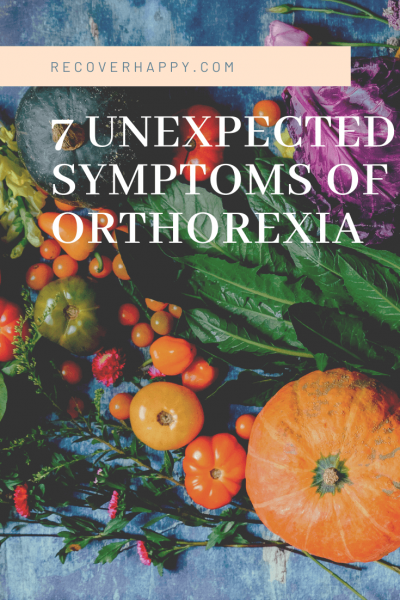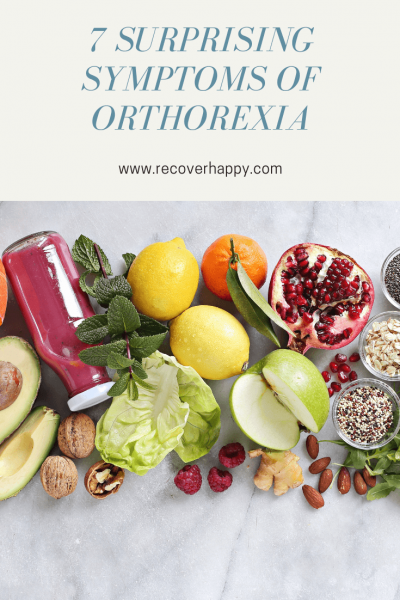7 surprising symptoms of orthorexia

By Tanja _ October 21, 2019
Are you obsessed about clean eating or eating healthily? Does your eating style interfere with your personal, social and work life? Does it even influence your physical and mental well-being?
Even though living a healthy lifestyle is highly recommended, you might have gone too far with your desire to be healthy. You might have developed symptoms that are associated with orthorexia, an eating condition characterised by a fixation on eating “purely” and healthily.
The word “orthorexia” was first coined by Dr Steven Bratman orthorexia in 1997. The term comes from the Greek words ὀρθός(correct) and ὄρεξις (appetite) and means literally “correct appetite”.
Despite having many similarities to anorexia and bulimia and being as clinically significant as other eating disorders, orthorexia is not recognised yet as an eating disorder in the Diagnostic and Statistical Manual of Mental Disorders or the American Psychiatry Association. This means that if you go to a doctor, they might bring up the term orthorexia, but they wouldn’t officially diagnose you with it.
Unlike in the case of anorexia or bulimia, people with orthorexia are not motivated to become thin. Instead, orthorexic people are driven by the urge to become healthy, clean and pure.
But how do you know if your healthy lifestyle has turned into orthorexia?
I would like to share with you seven surprising symptoms of orthorexia, to help you identify if you are affected by orthorexia or are likely to develop it.
1. You are obsessed with food quality
Your initial intention might have been to give your body and your mind the best and healthiest food possible rather than to achieve an ideal weight. However, with the passing of time, you have become more and more obsessed about food quality and seeking particular ingredients that give you a feeling of purity and health. “Clean eating” or “eating healthily” now forms the focus of your worldview and you spend a significant amount of time thinking about it. This might include excessively checking labels, researching the newest health trends or planning and preparing your meals.
2. You have strict food rules that affect your mood
3. You eliminate specific foods
4. You are constantly scared of becoming sick
5. You experience a change in your social relationships
6. You judge others on their eating style
7. You lack energy
If any of these symptoms of orthorexia sound familiar to you, you don’t need to struggle alone. You can learn to break out of your strict eating cycle, develop a positive relationship with food and your body and regain control over your eating and your life.
Simply get in touch to discuss how I can help you.
It is entirely possible to overcome orthorexia – others have done it and so can you!



